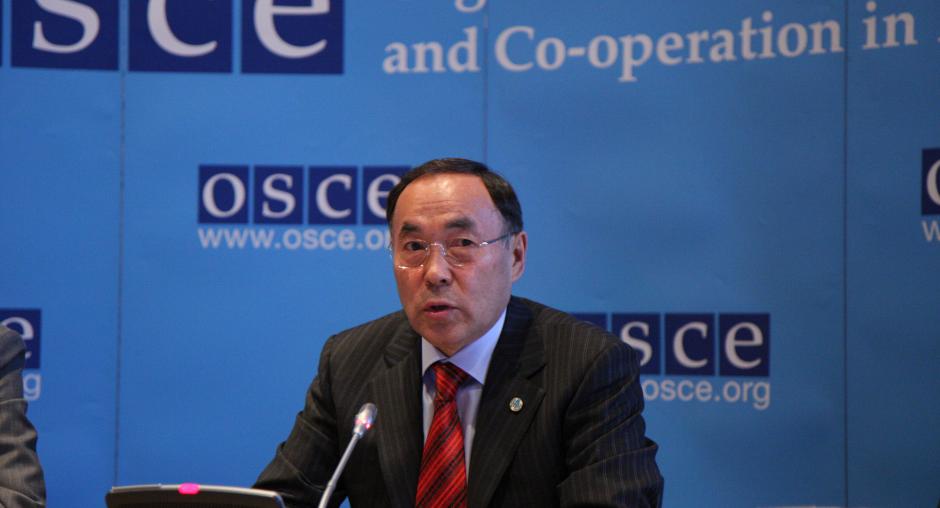Destination Astana
OSCE Chairperson-in-Office, Kazakhstan’s Secretary of State and Foreign Minister Kanat Saudabayev
Kazakhstan’s President Nursultan Nazarbayev set out an ambitious vision for our 2010 OSCE Chairmanship. But I believe that it was only by aiming high that we have been able to build momentum and reach the consensus needed to achieve results. It has taken a year of hard work and many discussions to bring us all to this point – the first OSCE Summit in 11 years.
For Kazakhstan as chair of the OSCE, one of our first responsibilities was to take forward the Corfu Process, a dialogue launched six months earlier by the Greek Chairmanship to rebuild trust between OSCE States so that real progress could be made on issues of common concern. During our Chairmanship we have given substance to the Corfu Process through regular meetings on substantive issues. These discussions shaped the agenda first for the informal meeting of foreign ministers that took place in Almaty in July, and now for the Summit.
The Summit, of course, is not an end in itself. But in an organization such as ours, which works to prevent, mediate and solve conflicts, such events are part of the process of building confidence and reflect the level of states’ commitment to achieving progress. The fact that all our States have agreed to send their highest representatives to my country is an important symbol of renewal – not just of the Organization, but more importantly of the relations between our States. Communication is the lifeblood of diplomacy – the way we solve our problems. In one year, we have changed the vocabulary of our conversations. We now speak of a single security community, encompassing the whole Euroatlantic and Eurasian region.
Confidence is built not just by talking to each other, but by understanding one another and working together. I believe that during this year in which Kazakhstan has stepped up to its responsibilities as an international leader, the other 55 OSCE States have got to know us better and realized the contribution we can make.
We have shown that the OSCE is truly an organization of equals, and that countries east and west of Vienna, large and small, have a valuable contribution to make. When some of the most pressing issues facing our Organization relate to Central Asia and Afghanistan, the value of having a Central Asian Chairmanship with an intimate understanding of its neighbours has been demonstrated. The tragic events earlier this year in Kyrgyzstan reminded us of the value of the OSCE’s role as a forum for dialogue, and the importance of building long-term mutual trust within it so that we can take joint decisions for prompt action when needed.
Throughout the year we have held several additional high-level and expert meetings that reflect the breath of the challenges that we face – from transnational threats to environmental and economic issues and fundamental freedoms. Last summer we held a high-level conference on tolerance in Astana. We also organized an event to celebrate the 20th anniversary of the Copenhagen Document – the OSCE’s landmark human rights document – in the Danish capital. In September we held an expert meeting in Vienna to exchange experience on electronic voting. The potential OSCE contribution to energy security was discussed at an expert meeting in Vilnius, while in October we hosted a high-level conference on combating terrorism.
Kazakhstan’s Chairmanship will soon be drawing to a close and will be passing the responsibility of leadership to Lithuania. I believe that we will be handing over an Organization that has more direction, purpose and optimism. The motto of our Chairmanship has been the four Ts - tolerance, tradition, trust, transparency. We have given attention to all of them this year, but perhaps it is in the area of trust that we have achieved the most – because trust is a prerequisite for a meeting such as this, and that trust has sadly been lacking for the past decade.
While we will pass on the task of seeing through the decisions participating States take at the Summit, the responsibility for seizing the momentum we have built lies with not just the Chairmanships, present and future, but ultimately with all 56 States. We will lay the groundwork, here in Astana – the challenge now is for all of us to seize this opportunity for building a more secure future.

